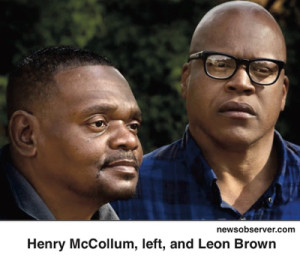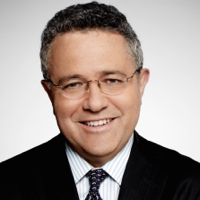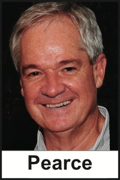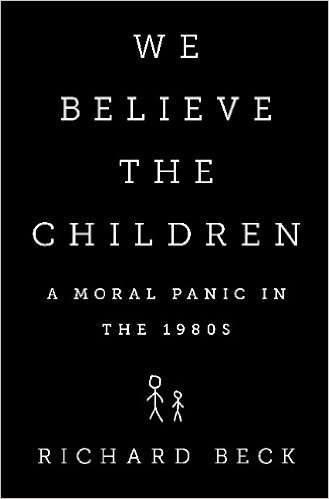Rascals case in brief
In the beginning, in 1989, more than 90 children at the Little Rascals Day Care Center in Edenton, North Carolina, accused a total of 20 adults with 429 instances of sexual abuse over a three-year period. It may have all begun with one parent’s complaint about punishment given her child.
Among the alleged perpetrators: the sheriff and mayor. But prosecutors would charge only Robin Byrum, Darlene Harris, Elizabeth “Betsy” Kelly, Robert “Bob” Kelly, Willard Scott Privott, Shelley Stone and Dawn Wilson – the Edenton 7.
Along with sodomy and beatings, allegations included a baby killed with a handgun, a child being hung upside down from a tree and being set on fire and countless other fantastic incidents involving spaceships, hot air balloons, pirate ships and trained sharks.
By the time prosecutors dropped the last charges in 1997, Little Rascals had become North Carolina’s longest and most costly criminal trial. Prosecutors kept defendants jailed in hopes at least one would turn against their supposed co-conspirators. Remarkably, none did. Another shameful record: Five defendants had to wait longer to face their accusers in court than anyone else in North Carolina history.
Between 1991 and 1997, Ofra Bikel produced three extraordinary episodes on the Little Rascals case for the PBS series “Frontline.” Although “Innocence Lost” did not deter prosecutors, it exposed their tactics and fostered nationwide skepticism and dismay.
With each passing year, the absurdity of the Little Rascals charges has become more obvious. But no admission of error has ever come from prosecutors, police, interviewers or parents. This site is devoted to the issues raised by this case.
On Facebook
Click for earlier Facebook posts archived on this site
Click to go to
Today’s random selection from the Little Rascals Day Care archives….
Click for earlier Facebook posts archived on this site
Click to go to
Today’s random selection from the Little Rascals Day Care archives….
NC GOP’s one weird trick for justice reform
 Feb. 11, 2016
Feb. 11, 2016
“Significant criminal justice reforms (are needed) to minimize the chances of wrongful prosecution in the future.
“Some might dismiss such goals as a liberal utopian ideal, but criminal justice reform is being embraced nationwide by tea party conservatives. Why? Because few things exemplify the overreach of an all-too-powerful government (better) than one that yanks away an individual’s freedom without legal justification….
“Conservatives in the heavily Republican Texas legislature have embraced some of the most far-reaching criminal justice reforms in the country….”
– From “Shame and joy behind 149 exonerations” in the St. Louis Post-Dispatch (Feb. 7 editorial)
And how is North Carolina’s own heavily Republican legislature taking up the cause of criminal justice reform? With the piously labeled Restoring Proper Justice Act, (text cache), which both conceals information on the drugs used for capital punishment and repeals a law requiring a physician be present. Sponsoring Rep. Leo Daughtry railed against “roadblocks in front of the death penalty (that) have stopped us from using the punishment” for the past decade.
Had Daughtry had his way, death row inmates Henry McCollum and Leon Brown would long since have been executed – instead of exonerated and then pardoned by the same governor who blithely signed the Restoring Proper Justice Act into law.
![]()
One argument for ‘satanic ritual abuse’ pardons

thebloomfirm.com
Jeffrey Toobin
Dec. 28, 2015
“One problem with pardons is that Presidents have considered them in secret, springing the decisions on the public only after they have been made. In high-profile cases, like Gerald Ford’s pardon of Richard Nixon or Bill Clinton’s pardon of the fugitive financier Marc Rich, the political repercussions have been disastrous.
“But Obama could avoid this problem with some innovation – and sunshine. Over the last year of his Presidency, his Administration should publish the names of people being considered for pardons. In this way, members of the public can make their views known about the wisdom (or lack thereof) of letting each individual out of prison.
“All Presidents and governors (who also have pardon power) are haunted by the possibility that they might release someone who goes on to commit horrible crimes. (Former Governor Mike Huckabee of Arkansas pardoned several people who did just that.)”
– From “It’s Time for Obama to Go Big on Pardons” by Jeffrey Toobin in the New Yorker (Dec. 22)
Yes, the risk attached to granting pardons is real. But is it even possible for someone convicted of an imaginary crime – such as the Edenton Seven and Junior Chandler – to be a recidivist?
Advising parents ‘one of the damnedest things I ever did’
 Feb. 18, 2013
Feb. 18, 2013
Gov. Jim Hunt was serving his fourth term (1997-2001) when prosecutors dropped the last Little Rascals charges. Although Gary Pearce, Hunt’s longtime adviser and later biographer, doesn’t remember the governor being involved in the case, Pearce experienced his own Edenton moment:
“I actually got called by one of the parents who had heard of me. I met with them and worked with them on a program that UNC-TV did (in 1993 to give parents a chance to respond to “Innocence Lost: The Verdict”). I did it just out of curiosity. It was one of the damnedest things I ever did.
“What the parents were claiming happened was, in the truest sense of the word, incredible. But they seemed absolutely and genuinely and sincerely convinced that it had happened….
“The best word to describe the whole thing is ‘gothic.’”
Defense attorneys were excluded from the program, UNC-TV director Tom Howe explained, because “We’re not really interested in getting into a tit-for-tat about guilt or innocence.”
At last, book lays bare ‘satanic ritual abuse’ era
 Aug. 10, 2015
Aug. 10, 2015
Since I undertook this blog in 2011, I’ve been waiting for a mass-market book that recalls the “satanic ritual abuse” day-care era with authority, insight and thoroughness.
“We Believe the Children: A Moral Panic in the 1980s” comes pretty darn close to meeting that standard. (I do wish author Richard Beck had addressed the significant post-panic contributions of Richard Noll and Allen Frances.)
I’ll be posting excerpts from the book and later an interview with Beck.
Meanwhile, I’ve been pleased to see the reviews in the news media – so far, all largely appreciative.
“…This book does a devil of a job correcting… all the lies and self-deceptions, so credulously believed in the 1980s….”
– From “Child Abuse Cases Endure as Lessons in Hysteria” by Mark Oppenheimer in The New York Times (Aug. 6)
“ ‘We Believe the Children’ should serve to remind us of the dangers of the ‘we must believe the victim’ mindset in the case of any criminal offense. A faith-based pursuit of justice can lead to a miscarriage of justice.”
– From “What Fueled the Child Sex Abuse Scandal That Never Was?” by Lizzie Crocker at the Daily Beast (Aug. 3)
“ ‘We Believe the Children’ reveals the various combinations of ignorance, venality, arrogance and zealotry that characterized the major players who fueled the moral panic.”
– From “A Very Model Moral Panic” by Carol Tavris in the Wall Street Journal (Aug. 7)
Here also is a radio interview with Beck and – inevitably – a response from witch-hunt denier Ross Cheit.











0 CommentsComment on Facebook